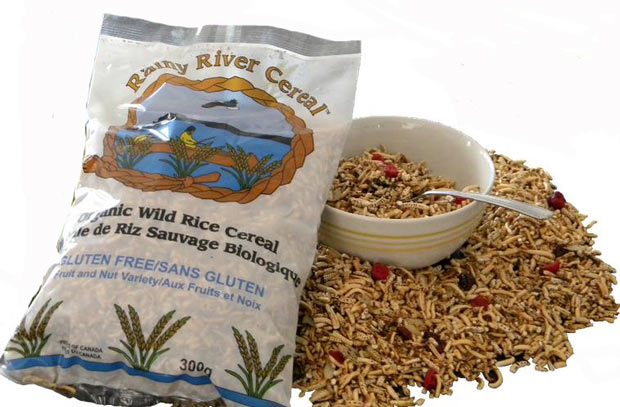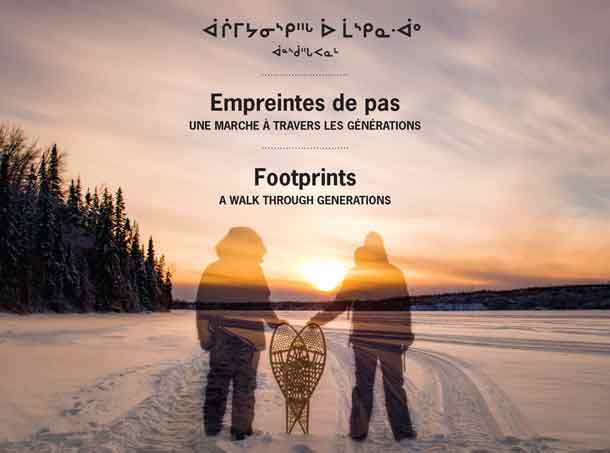 NIGIGOONSIMINIKAANING FIRST NATION – Rainy River Cereal is taking a traditional food, and sharing it across Canada. The cereal invented and patented by Shirley and Andrew Atwell is gluten free, awesome in taste, and is said to add years to the lives of Aboriginal people. The traditional food hammers on the mortality rate of Aboriginal peoples, and everyone else too! Eating healthier adds years to your life.
NIGIGOONSIMINIKAANING FIRST NATION – Rainy River Cereal is taking a traditional food, and sharing it across Canada. The cereal invented and patented by Shirley and Andrew Atwell is gluten free, awesome in taste, and is said to add years to the lives of Aboriginal people. The traditional food hammers on the mortality rate of Aboriginal peoples, and everyone else too! Eating healthier adds years to your life.
The cereal is a return to a centuries old staple to the diet of Aboriginal people. whose array of natural staples were traditionally led by fish, wild game and ‘manomin’ or wild rice.
Rainy River Cereal
It is a back to the future move for the company, taking the traditional food from the past and putting them forward into the modern context. It is a move at a corporate level that is actually being copied by growing numbers of people in Northwestern Ontario and beyond.
The cereal is making progress toward hitting the market in a bigger way. Part of the success could be coming from funding from the Northern Ontario Heritage Fund Corporation. Additionally Rainy River Future Development Corporation is offering help.
What is needed to put the entire package together is a third party investor. There is also support for the company being sought from the federal government. Greg Rickford, the Member of Parliament for Kenora has been asked to help find support for the company.
Traditional Diet – Back to the future

Traditional diets have far lower levels of health problems for Aboriginal people.
Wild rice and the process of gathering it have a timeless history in the Aboriginal culture. First Nation, Metis, and Inuit peoples starting in the fall, prepared for the long winter ahead. These activities included gathering wild rice, preparing birds, meat, hides, and fish. As well gathering of traditional medicines, foods, and teas are a part of the activities.

John Walmark, sharing at Fort William Historical Park last fall explained how between the gathering of wild rice, the roasting and rice dancing was not only a part of gathering food, but it was a social engagement.
The women sought out men who would be good providers.
That was key in the community for long term survival. Women sought out the men who would be able to hunt, supply a family with the food, and have the endurance to make sure that he was able to support his family and the community.
Today, increasing numbers of people are seeking a return to traditional ways.
How to eat in a more traditional way
Today many people live in urban centres and do not practice traditional hunting skills, so eating only traditional food may not be practical. However, you may find that keeping traditional ways is easier than you think.
Try to enjoy:
- Whole wheat flour, berries and raisins in bannock.
- Whole wheat pastas and brown rice.
- Oatmeal (“mush”) for breakfast.
- Country meats – moose, deer, caribou.
- Fish meals two or more times a week.
- Barley in moose stew, caribou stew or fish head soup.
- Fruit in season. Can and preserve fruit to use in the winter months or buy canned or plain frozen ones.
- Beans, peas and lentils are inexpensive – add to salads and soups.
- Whole fruit more often than 100% unsweetened fruit juice because the fruit has more fibre.
- Drinking plenty of water.
- Herbal teas.
Eat less often and in small amounts:
- White rice.
- Fried, fatty food such as French fries, fried meats and fish.
- Breads, cereals and crackers made with white flour.
- Sweetened, high fat baked goods: donuts, cakes, pies, cupcakes, muffins and cookies.
- Sugar: white and brown sugar, honey, jam, table syrup, corn syrup.
- Processed meats: bologna, spam, hot dogs, and deli or luncheon meats, pizza, sauces, and soups.
- Added fats like: butter, lard, shortening, salad dressing. Use vegetable oil sparingly.
- Sweetened drinks: fruit drinks, fruit punches, packaged drink mixes, fruit cocktails, sports drinks and pop.
For more information on Rainy River Cereal visit www.rainyrivercereal.com


